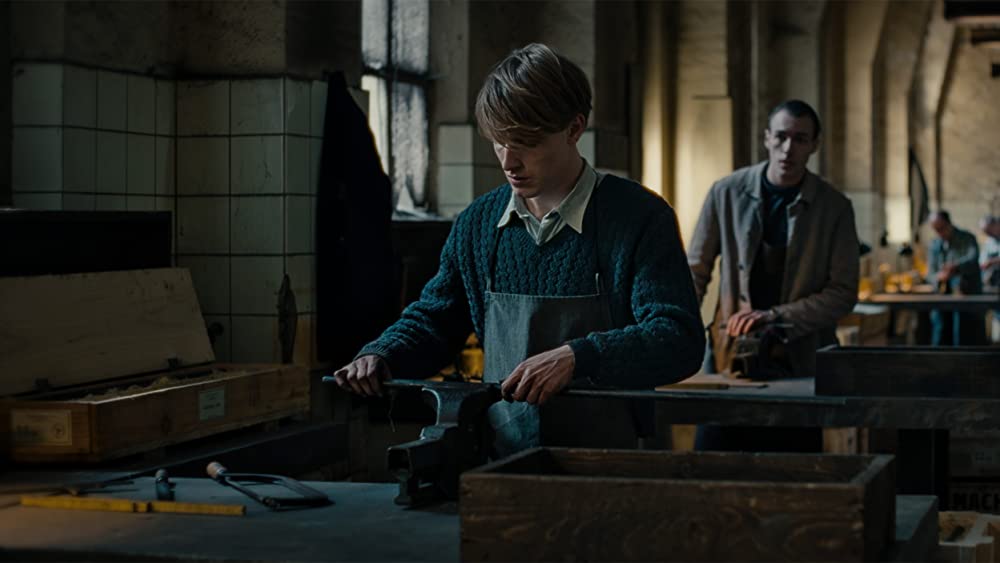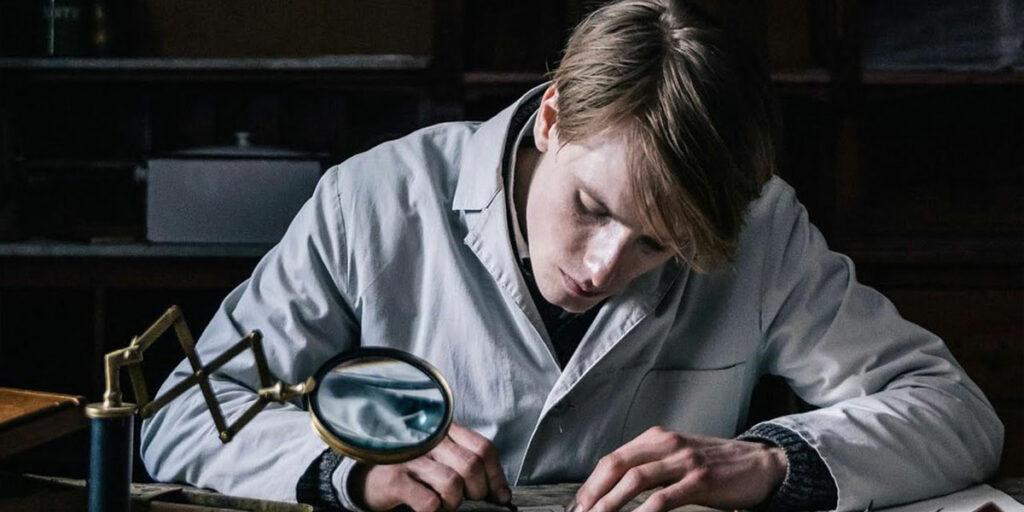Maggie Peren’s The Forger tells a compelling story without unnecessarily visualising the horrors or war, but could have ramped up the tension a bit more.
Sometimes telling, not showing, is the best way to emphasise the horrors of war, and sometimes all that’s needed is an implication. In writer/director Maggie Peren’s The Forger (Der Passfälscher), it’s the inference of what exactly could become of its protagonist that provides the most tension, but the film doesn’t emphasise it as much as it could have for maximum white-knuckle value.
Blonde haired and blue-eyed, Cioma Schönhaus (Louis Hofmann, of Dark) certainly looks the part of the Aryan soldier loyal to the Nazi party in 1940s Berlin. But, in actuality, Cioma is a Jewish man who makes a living forging papers for fellow Jews looking to flee the country. It’s a dangerous existence, but Cioma breezes through his dangerous lies, relying on charm, luck and other people’s good will. His best friend Det (Jonathan Berlin) is constantly looking out for him, but as the net starts to close in, Cioma might just have to forge the best fake ID yet: his own.
The Forger utilises the idea that less is more very effectively, and the only real idea we’re given of the war happening outside is muffled air-raid sirens and flashing lights in the night sky. It’s effective because the film doesn’t need to show the atrocities or the damage of the wider conflict, because it’s stakes are much more personal; the implicit understanding that both the audience and the characters have of what was happening in reality is something that Peren builds on quite cleverly and makes what isn’t shown that much more menacing.

On the flip side, however, the film never really feels as tense as it could be. It’s based on memoirs – with the fate of the real Cioma Schönhaus delivered on a title card before the end credits – but it doesn’t ever feel as though it’s interested in exploring his character in any real depth. We aren’t privy to his fears or worries; the relationships he has with best friend Det and brief-fling Gerda (Luna Wedler) are evidently important to him but not particularly developed, and there’s an aloofness to his character that means the first hour or so lacks a little momentum.
It’s still a compelling him, but it’s a little difficult to properly connect with Cioma since it feels as though he’s constantly putting on an ‘act’. The rawer, more poignant moments land well, and Hofmann’s performance is really engaging, but a bit more tension throughout might have made the emotional payoff that bit more rewarding. Cioma states that he ‘values the world too much not to play a role in it’, and his is a very inspiring story. It’s estimated he forged over three hundred ID cards for fellow Jews, but the film doesn’t really give us any sense of him or who he was outside of his necessary deceptions, and that might have helped the moments of peril feel like the life-or-death situations they were in actuality.
The Forger is a compelling, if slightly less tense than expected story of one man’s important and inspiring achievement. Utilising sound and impressive performances, it cleverly implies its danger without unnecessarily visualising the horrors that came with being Jewish in Nazi Germany. But while Peren doesn’t show nor tell as much as we might have hoped, it still feels like a ‘little piece of art’ that can be enjoyed, felt and learnt from.
The Forger premiered at the 2022 UK Jewish Film Festival on 15 November, 2022.

